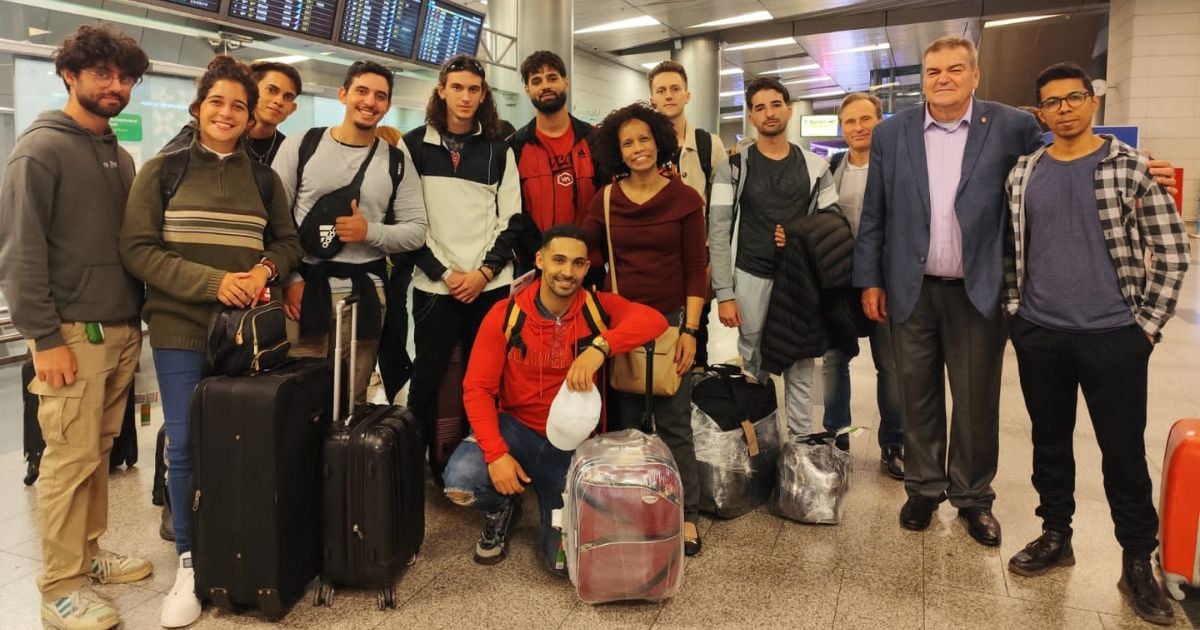
A group of 11 young Cubans arrived in Moscow to continue their education in undergraduate and postgraduate programs, particularly in areas related to the railway sector.
With the arrival of this new group, there are now over 80 professionals in the railway sector undergoing training at various educational levels, as a result of the collaboration between Russia and Cuba, according to Transport Minister Eduardo Rodríguez Dávila, who shared this information via his Facebook account.
Rodríguez indicated that the group consists of seven second-year students, selected from specializations such as industrial and mechanical engineering at universities in various Cuban provinces.
These students will continue their training in technical careers focused on the operation of locomotives and the management of the railway system, as well as in the organization of logistical processes for both passengers and freight.
The other four members of the group are young professionals who will specialize at the master's level in key areas such as rolling stock and railway tracks, Rodríguez emphasized.
It was also reported that the majority of the students will continue their training at the Russian University of Transport, an institution that will welcome them to further their studies in the areas that the Cuban regime considers "strategic" within the railway sector.
The minister expressed his confidence in the group of Cubans, stating that although they will "face the challenges of the language and the cold," they will be able to leverage the "knowledge from one of the countries with the greatest expertise in railway matters."
However, his statements overlook the rising wave of desertions among Cuban students in Russia, driven by the regime's ongoing delays in the payment of financial support. This issue, which the minister avoided mentioning, significantly affects those facing these difficult circumstances abroad.
At the beginning of the month, the company Russian Railways (RZD, as it is known in Russian) once again promised to revive a long-abandoned multimillion-dollar plan that will aid in the recovery and modernization of the Cuban railway.
These intentions were expressed during the Eastern Economic Forum in Vladivostok, held in that Russian city, where the contract they seek to reactivate with Cuba was detailed, despite the suspensions and delays of previous years, primarily due to the Cuban government's inability to make payments.
"The contract for the renovation and modernization of Cuba's railway infrastructure includes several branches, particularly the central line from Havana to Santiago de Cuba, which spans 835 kilometers," said Serguei Pavlov, Deputy Director of RZD, to Sputnik News as cited by Prensa Latina.
Filed under: